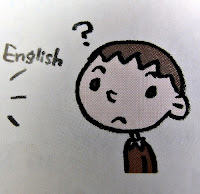Lorsque vous travaillez sur vous-même un mieux, l'une des meilleures choses que vous pouvez faire est d'obtenir un diplôme collégial. Obtenir un baccalauréat est très importante pour votre avenir, car sans celui que vous allez être incapables de trouver des emplois mieux rémunérés, ou de l'avance autant que vous pouvez dans votre carrière.
Cours de français et d'anglais
vendredi 18 mars 2011
Ecoles des patients technicien en soins et cours: Où trouver des classes pour les soins aux patients Tech?
Le domaine médical autant que tout autre, il faudra que les certifications spécifiques sont accomplies avant qu'une personne est autorisé à effectuer des procédures médicales ou assister aux procédures. Comme les soins aux patients tech tomberont dans ce groupe, il ya certaines tâches ou des leçons qui doivent être apprises avant que quelqu'un est autorisé à commencer à travailler comme technicien en soins des patients.
3 raisons de suivre des cours en ligne de l'AIIC
cours de l'AIIC apporter des connaissances et l'expérience de prendre soin des patients, qu'ils soient dans les hôpitaux ou maisons de soins infirmiers. A l'AIIC est la personne qui sera en contact permanent avec les malades, nourrir, se laver, s'habiller et leur donner les médicaments dont ils ont besoin. Être en mesure de servir la société est un travail très enrichissant qui peut maintenant être accompli grâce à des cours en ligne de l'AIIC. Une certification est un point exigeant de travailler comme assistante infirmière donc assister à un cours de l'AIIC est obligatoire.
vendredi 11 mars 2011
Free Courses, Lecture Notes, Syllabus, Tutorials, Audio and Video from MIT professors
Courses by Department :
Courses Aeronautics and AstronauticsCourses AnthropologyCourses ArchitectureCourses Athletics, Physical Education and RecreationCourses Biological EngineeringCourses BiologyCourses Brain and Cognitive SciencesCourses Chemical EngineeringCourses ChemistryCourses Civil and Environmental EngineeringCourses Comparative Media StudiesCourses Earth, Atmospheric, and Planetary SciencesCourses EconomicsCourses Electrical Engineering and Computer ScienceCourses Engineering Systems DivisionCourses Experimental Study GroupCourses Foreign Languages and LiteraturesCourses Health Sciences and Technology
* History
* Linguistics and Philosophy
* Literature
* Materials Science and Engineering
* Mathematics
* Mechanical Engineering
* Media Arts and Sciences
* Music and Theater Arts
* Nuclear Science and Engineering
* Physics
* Political Science
* Science, Technology, and Society
* Sloan School of Management
* Special Programs
* Supplemental Resources
* Urban Studies and Planning
* Women's and Gender Studies
* Writing and Humanistic Studies
http://ocw.mit.edu/courses
Courses Aeronautics and AstronauticsCourses AnthropologyCourses ArchitectureCourses Athletics, Physical Education and RecreationCourses Biological EngineeringCourses BiologyCourses Brain and Cognitive SciencesCourses Chemical EngineeringCourses ChemistryCourses Civil and Environmental EngineeringCourses Comparative Media StudiesCourses Earth, Atmospheric, and Planetary SciencesCourses EconomicsCourses Electrical Engineering and Computer ScienceCourses Engineering Systems DivisionCourses Experimental Study GroupCourses Foreign Languages and LiteraturesCourses Health Sciences and Technology
* History
* Linguistics and Philosophy
* Literature
* Materials Science and Engineering
* Mathematics
* Mechanical Engineering
* Media Arts and Sciences
* Music and Theater Arts
* Nuclear Science and Engineering
* Physics
* Political Science
* Science, Technology, and Society
* Sloan School of Management
* Special Programs
* Supplemental Resources
* Urban Studies and Planning
* Women's and Gender Studies
* Writing and Humanistic Studies
http://ocw.mit.edu/courses
mardi 22 février 2011
list of English verbs and prepositions
 |
| English verbs and prepositions |
accuse someone of something
"He accused her of stealing."
agree with someone / something
"I agree with you – you are absolutely right."
agree to do something
"She agreed to wait for him."
agree on something
"We've agreed on all the major points."
apply for
"I'm going to apply for a new job."
apologise for something
"She apologised for being late."
ask someone to do something
"She asked him to do the shopping for her."
ask someone for something
"She asked her boss for a day off."
believe in
"I believe in hard work."
belong to
"This pen belongs to me."
blame someone for doing something
"He blamed her for driving too fast."
blame something on someone
"He blamed the accident on her."
borrow something from someone
"He borrowed some money from the bank."
care about something
"I don't care about money."
care for someone
"She really cares for her grandmother."
take care of something / someone
"Please take care of yourself on holiday."
complain to someone (about something)
"He complained to her about the food."
concentrate on something
"The student concentrated on her homework."
congratulate someone on doing something
"He congratulated her on passing her exam."
consist of something
"The department consists of five people."
depend on someone
"She depended on her friends for support."
explain something to someone
"She explained the new system to them."
listen to someone
"The students listened to their teacher."
look at something
"Look at that view – it's wonderful."
look for something / someone
"Will you help me look for my book?"
look after someone
"I need to look after my mother – she's ill."
pay someone for something
"Can you pay me for the shopping later?"
prefer someone / something to someone
"I prefer coffee to tea."
protect someone from something
"A scarf will protect you from the cold."
provide someone with something
"They provide families with housing."
regard someone as
"She regarded her sister as her best friend."
rely on someone / something
"Can I rely on you to get the shopping?"
search for someone / something
"The police searched the building for bombs."
spend money / time on
"I spent all my money on books as a student."
think about someone / something
"I think about you all the time."
think about / of doing something
"I'm thinking about / of buying a new car."
think of something
"I've just thought of a new idea."
"What do you think of the new magazine?"
translate from something into something else
"Don't translate from English into French."
wait for someone
"I waited an hour for him, then went home."
warn someone about
"The doctor warned her about smoking."
Learn English Prepositions and Verbs
apologise for something"She apologised for being late."
ask someone to do something"She asked him to do the shopping for her."
ask someone for something"She asked her boss for a day off."
believe in"I believe in hard work."
belong to"This pen belongs to me."
blame someone for doing something"He blamed her for driving too fast."
blame something on someone"He blamed the accident on her."
borrow something from someone"He borrowed some money from the bank."
care about something"I don't care about money."
care for someone"She really cares for her grandmother."
take care of something / someone"Please take care of yourself on holiday."
complain to someone (about something)"He complained to her about the food."
concentrate on something"The student concentrated on her homework."
congratulate someone on doing something"He congratulated her on passing her exam."
consist of something"The department consists of five people."
depend on someone"She depended on her friends for support."
How to use the present perfect tenses in English
When do you use the Past Simple ("I did") and the Present Perfect ("I have done")?The tense you choose depends on how you consider the event. Is it finished, or is there still a connection to the present?
If you use the Past Simple ("I did"), you consider the event or events as finished and in the past. This tense is often used with a time reference: last year, last week, in 1991, this morning (if it's now the afternoon) and so on.
With the Present Perfect ("I have done"), there is a connection to the present.
For example, "I have lived here for five years." (I still live here.)
Uses of the Present Perfect
When the past affects the present
"I've lost my wallet."This means that you have lost your wallet (sometime in the past, but we don't know when), but what is really important is that you don't have it now, at the time of speaking.
If instead, you say "I lost my wallet", people understand that you lost it, but not that it affects the present. They expect you to tell them about the time that you lost the wallet.
We use the Present Perfect tense to show that something has a result or a connection to now. This means that it's used to give news.
"The Euro slips!"(headline)
"The Euro has slipped against the pound again."(news report)
"My sister has had a baby." (announcing news)
Experiences
Your experiences make you the person you are now. We don't use dates and times to give information on what makes you this person.
"I've been to New Zealand." (I know something about New Zealand.)
We often ask questions about people's experiences with ever. For example, "Have you ever been white-water rafting?"
States or activities that started in the past, which have continued up to now and will probably continue into the future.
"I have worked here for five years."
"I have lived here since 1994."
Use since to give the date that an activity or state started and use for to give the period of time the activity or state has lasted.
Recent past
"Have you finished yet?"
"I've already written the report." (Here it is.)
In these type of examples, we often use yet, already still, just and recently.
Note: American English uses the Past Simple instead of the Present Perfect in these examples. For instance, "Did you eat yet?"
Using both tenses in a conversation
"Have you travelled much?"
"Yes, I've been to the USA."
"Oh really? When did you go?"
The first question and the reply concern a person's experience, so they use the Present Perfect. But the second question asks for more information about the experience. Because it refers to a past time (when the person went to the USA), the Past Simple is used.
The conversation could continue:
"Oh really? When did you go?"
"Two years ago. I visited a friend in California, but I only stayed a week."
"Did you like it?"
"Yes, it was a fantastic trip."
How to use the Present Perfect Continuous.
Temporary situations
Like the Present Continuous and Past Continuous, the Present Perfect Continuous is used to talk about activities or states that are temporary, rather than permanent.
Compare:
"I have been the Marketing Manager for five years." (This is my job.)
"I've been working on a new customer database." (This is a temporary project.)
Unfinished situations
"I've been writing letters all morning." (I still haven't finished them.)
"This morning I've written three letters." (They are all finished.)
Repeated and continuous actions
"No wonder you're not hungry. You've been eating sweets for the last hour." (One sweet after another.)
Inscription à :
Articles (Atom)


